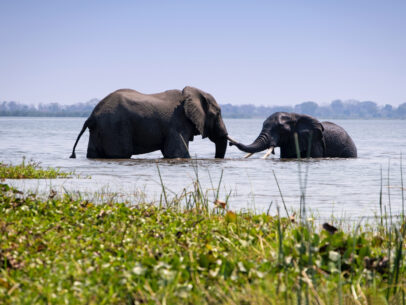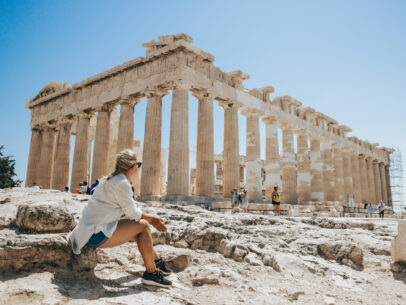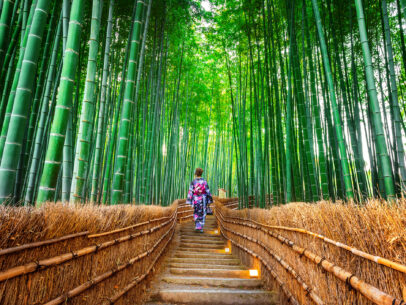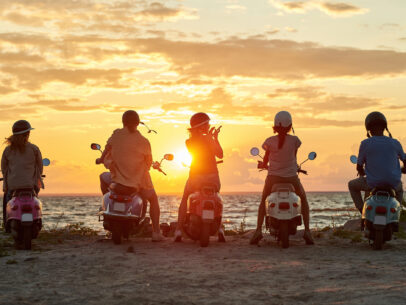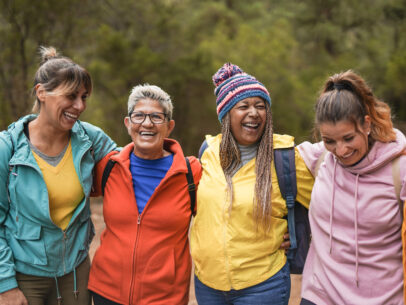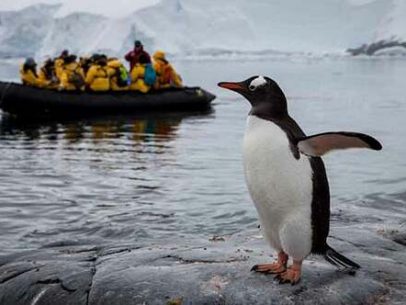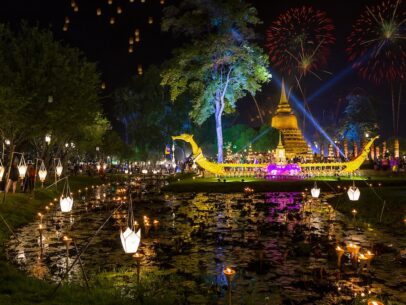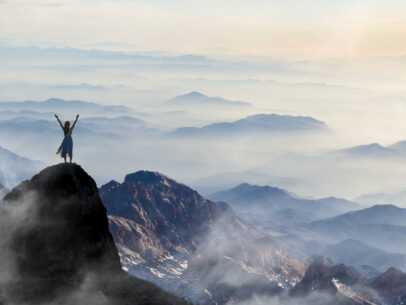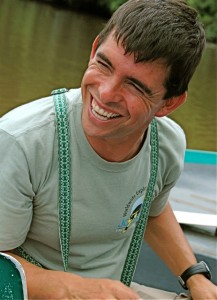
The Bird’s Word Blog
My office is this whole beautiful country

Joan Weber reflects on her experience with Marco Fallas, one of Journeys’ most respected and requested guides, and shares his stories of growing up in Costa Rica.
Early on the first morning, Marco asks our driver, Raul, to turn off the ignition, and we pull over. Marco is an experienced guide, in his forties, with a warm smile. On the side of the road, in the middle of a sun-drenched valley, his arms sweep across the vista, across the dark green coffee fields ringed by volcanic peaks, and he introduces us to his country.
“My Costa Rica,” he says, “there is no place on earth like her. We are smaller than South Carolina, but think about it. Pacific on the west, Caribbean on the east and 27 volcanoes. Think what that means for our bio-diversity.” The word rolls off his tongue slowly, with reverence, “bio-diversity.” For the next ten days, he fixes our attention on all the glorious evidence, on the dramatic differences between the tropical lowlands and highland cloud forests, on the feisty monkeys, camouflaged lizards, unmoving sloths, thumbnail-sized frogs, on the hummingbirds, toucans and even the bird that’s most beautiful and most difficult to find, the resplendent quetzal.
For the ten days we spend with Marco, his enthusiasm never wanes. The energy he brings each morning, the thrill at every observation, his wide-eyed wonder, are contagious. We are aware that we are in the presence of a master – a guide, naturalist and storyteller who opens us way up and fills us with gratitude.
Throughout the trip he regales us with stories of the land, the people and the ways of Costa Rica. The story that moves us most is Marco’s own. One evening toward the end of the trip, in the quiet intimacy of the van, we ask about his life. What brought him to tourism? We’d just witnessed Arenal Volcano delivering an astonishing show, red boulders and sparks and lava cascading down her slopes, and we’d noticed Marco overcome with emotion as if he’d never seen the volcano before. Settling in for the long ride back to the hotel, we ask Marco to tell us about himself.
He speaks quietly. “When I was a little boy, I guess you could say I was like the white sheep. In the school I was the goalkeeper for the futbol and I got the good grades, I was a good learner. The top three students in every rural school are invited to attend a special high school and my principal gave me the good news one day, I was one of the three. I was sooo excited! I went home and I told my mama, and she cried.”
“Why, Marco?,” we wonder. “Why did she cry? Because she was happy? ”
He tilts his head far to one side and he smiles wistfully. He’s back there. He says, “It was because she had to tell me, ‘no you can’t go, we can’t afford that.’ I didn’t let her see but I cried too. I wanted to go. I had a dream. I thought maybe, maybe, even though we are poor and my father left when I was a baby, and it is just my brother and mama and grandfather…I thought maybe I could be a lawyer.”
We are barely breathing. Marco continues, “I said, ‘it’s okay mama, it’s okay, we’re going to be alright.’”
Marco left school when he was 12 and worked with his grandfather in the fields of wealthy landowners. “With machetes,” he tells us, “lado a lado with my Tata.” Side by side with my grandpa. Into his teens, this is where Marco placed his energy and earnestness, and then came a remarkable turn in the story. One of the landowners had a tour company, and she took notice of Marco. She saw his potential. She saw his warmth and his smarts and his spirit — just as his teachers and principal had seen them, just as we travelers get to witness today — and she offered him an opportunity in tourism.
And all of that led to this moment in the van. To the days of wonder that we shared with Marco, and to the opportunities likewise enjoyed by hundreds of others. Not one of us is wishing that Marco had become a lawyer. Certainly not Marco. “I am the luckiest man in the universe,” he tells us, “I could not be more lucky. My office is this whole beautiful country.”
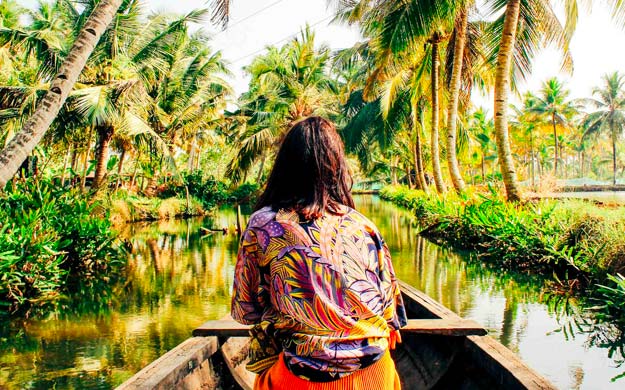
Design an adventure with Journeys International!
With over 40 years of experience, we create experiences that match your goals.
Start Planning